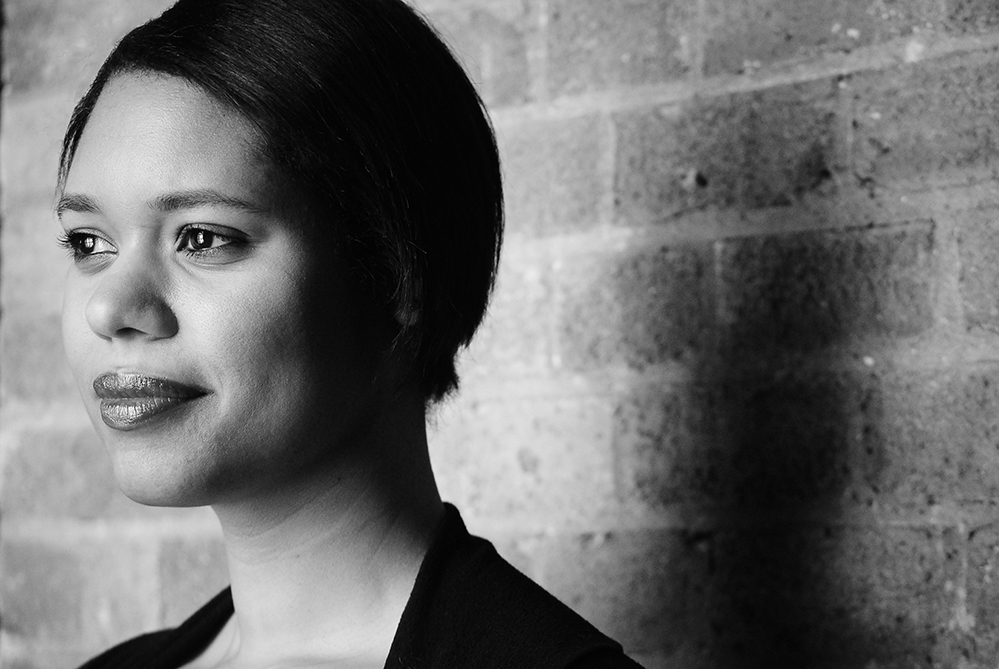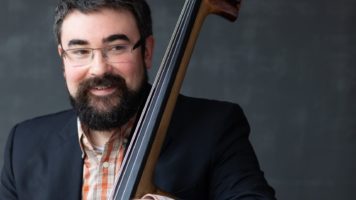Known for her attentive arrangements and immersive world-building, Hannah Kendall’s music looks beyond the boundaries of composition. Her work bridges gaps between different musical cultures, both honouring and questioning the contemporary tradition while telling new stories through it. Contrasting fine detail with limitless abandon, she has become renowned both as a composer and a storyteller, confronting our collective history with narratively-driven pieces centred on bold mission statements.
Marked by striking and often polarising dynamics, her large-scale work simmers on the surface, and is upturned by the briefest moments of bombast. Ensemble pieces subvert audience expectations of ‘quiet and loud’, ‘still and moving’; scattering those musical opposites unexpectedly. The sounds are visceral, but their placement is complicated, disclosing the detail that exists beneath. While hinging on intense moments, Kendall’s music is also staggeringly intricate, manoeuvring tiny decisions that reveal themselves on further listens.
Kendall’s recent work has provided a meeting point for different types of music, carrying with it the weight of connected but unharmonised histories. Recently, she’s achieved this by looking beyond the typical tools of composition, using auxiliary instruments that exist outside of the concert hall. In Tuxedo: Vasco ‘de’ Gama, she integrated the spiritual Wade in the Water, transcribing its melody into a delicate music box, contrasting the fragility of the instrument against the song’s resounding place in history. Tuxedo: Hot Summer No Water (2020) for solo cello features an ACME Metropolitan whistle, placing a sonic timestamp on the piece; pointing to a year significantly defined by the police’s presence in black communities.
Her Tuxedo series is named after an artwork by American artist Jean-Michel Basquiat. His eponymous piece provides one of many graphic scores that Kendall has used as inspiration throughout her career. Rather than create ‘representations’ of these images, she uses them to spark her writing process. Building pieces from a place of intuition, her compositions are just as likely to be become abstracted, turned inside out by surprises she finds along the way, as they are to have a firm narrative.
Kendall’s work has been widely celebrated. She has created pieces such as Disillusioned Dreamer (2018), which the San Francisco Chronicle praised for having a ‘rich inner life’, as well as The Knife of Dawn (2016), a chamber opera that received critical acclaim for its involving and claustrophobic representation of the incarceration of Guyanese political activist Martin Carter. Her work has been performed extensively, and across many platforms. She has worked with ensembles including London Symphony Orchestra, BBC Symphony Orchestra, Boston Symphony Orchestra, Seattle Symphony Orchestra, The Hallé, Ensemble Modern, and London Sinfonietta, but you’ll also find her collaborating with choreographers, poets and art galleries; crossing over to different art-forms, and celebrating the impact these unique settings have on sound. She is currently composing an Afrofuturist opera for experimental vocalist and movement artist Elaine Mitchener, and is the recipient of the 2022 Hindemith Prize for music composition.
Born in London in 1984, Kendall is based in New York City as a Doctoral Fellow in composition at Columbia University.

